Search Images
Browse Content (p. 1285)

Image
Leo III
A gold nomisma coin depicting Byzantine emperor Leo III (r. 717-741 CE). (British Museum, London)
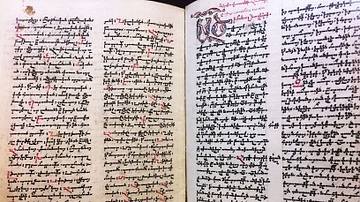
Image
Armenian Medical Book
This 14th century CE medical text is written in Armenian and is entitled "Passages of Works by Asclepiades, Democrates and Oribasius." This work is usually attributed to scribe Martiros who translated documents from ancient Greek into Armenian...
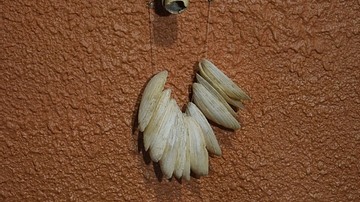
Image
Ancient Armenian Seashells
These ancient seashells came to what is present-day Armenia from the Persian Gulf and the Mediterranean Sea via trade. They date from the 15th-13th century BCE and attest to the region's importance as a crossroads of trade between Europe...
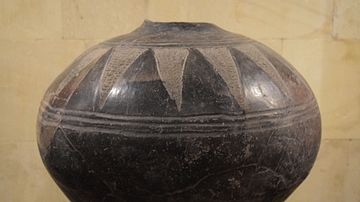
Image
Prehistoric Armenian Ritual Jug
This prehistoric ritual jug was made from clay and has stylized geometric decor. It comes from what is present-day Armenia and dates from the 11th-9th century BCE. Geometric decor commonly appears on vases and other ritual vessels during...

Image
Prehistoric Armenian Ritual Ware
This elegant ritual ware vessel is made of clay and dates from the 12th-9th century BCE. It was excavated in what is present-day Armenia. (Metsamor Historical-Archaeological Museum-Reserve, Taronik, Armenia)
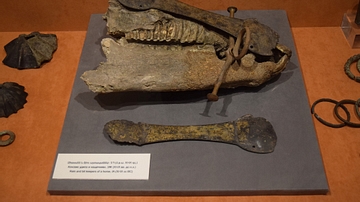
Image
Ancient Rein and Bit Keepers
This rein and its accompanying iron bit keepers date to the 11-9th century BCE. They were used with horses and unearthed in what is present-day Armenia. (Metsamor Historical-Archaeological Museum-Reserve, Taronik, Armenia)
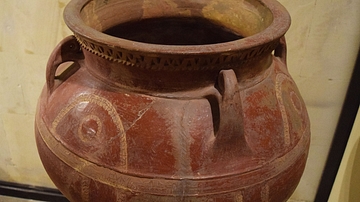
Image
Armenian-Byzantine Vessel
This elegant clay patterned vessel dates from the 10-11th century CE when what's present-day Armenia was under strong Byzantine political and cultural influence. (Metsamor Historical-Archaeological Museum-Reserve, Taronik, Armenia)
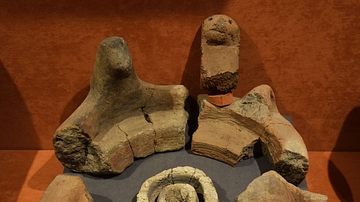
Image
Fragments of Ancient Armenian Hearth
These are fragments that were originally part of an ancient Armenian hearth. (Metsamor Historical-Archaeological Museum-Reserve, Taronik, Armenia)
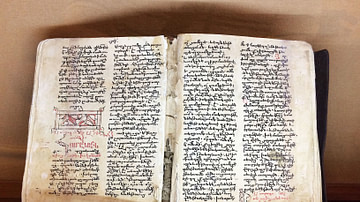
Image
Aristotelian Manuscript in Armenian
This is a 14th century CE manuscript in Armenian on the discoveries made by the ancient Greek philosopher Aristotle. The text of this document was first translated from Greek into Armenia in the 6th century CE. (Mesrop Mashtots Institute...

Image
Byzantine Empire c. 460 CE
A map indicating the Byzantine Empire (aka Eastern Roman Empire) c. 460 CE during the reign of Leo I (457-474 CE)